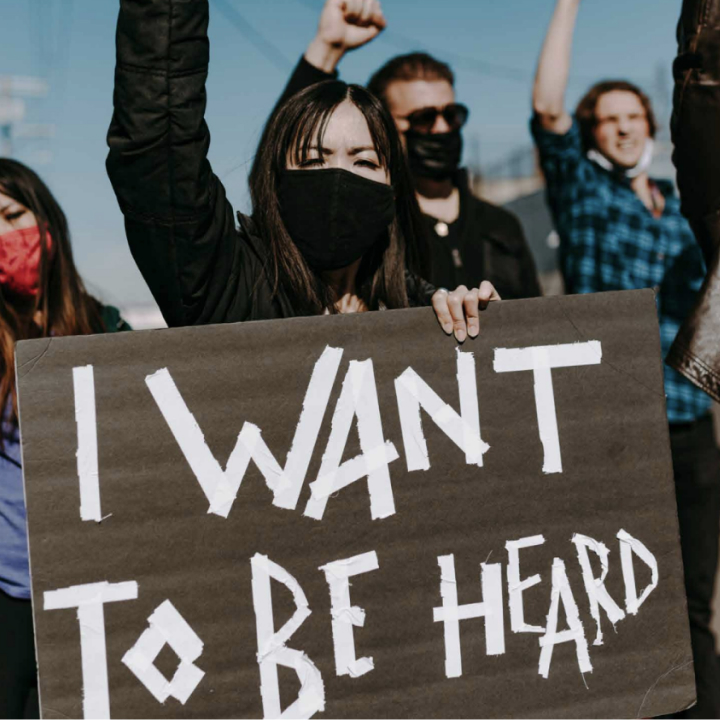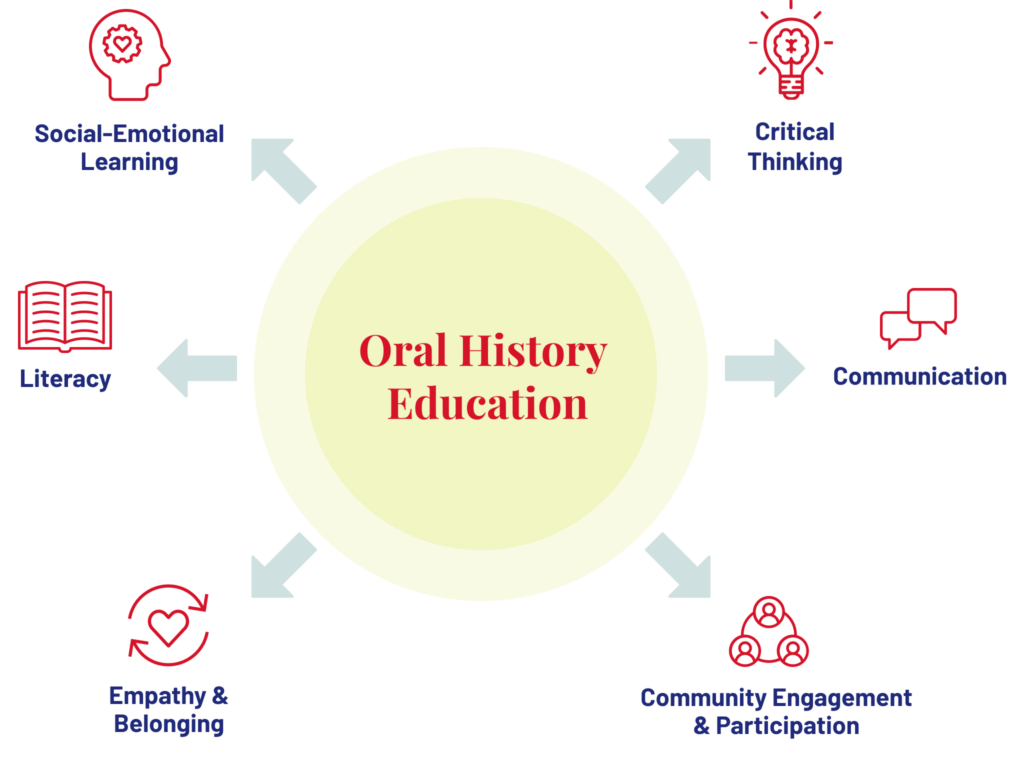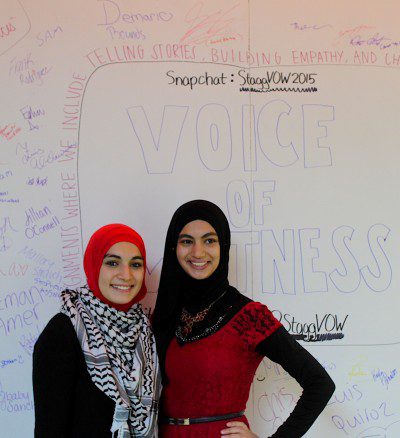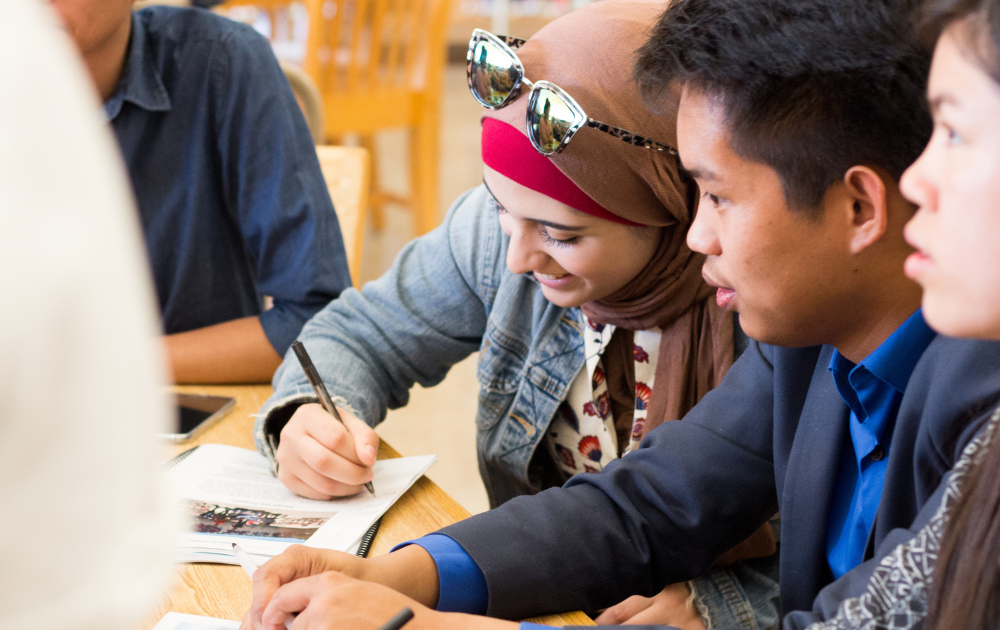
Sharing History Initiative
What is the Sharing History Initiative (SHI)?
The Sharing History Initiative introduces oral history and social justice storytelling to under-resourced classrooms and communities around the United States by providing educators, nonprofits, and advocates with free Voice of Witness books and free culturally relevant curricula.
This national book placement program has placed more than 7,800 copies of our books in over 282 schools and organizations around the US since 2015, and offers a dynamic approach for teaching and learning about our most pressing human rights issues.
The Sharing History Initiative is made possible with the generous support of the Germanacos Foundation and the Abundance Foundation.
Note: This program is currently on hiatus.
More Info
Many educators and advocates are searching for resources that create inclusive spaces for diverse voices and experiences that better reflect their students and/or the world around them. In the US, the freedom to learn and to teach truth is facing enormous threats, from educational gag orders to book bans that aim to erase uncomfortable truths about oppression and injustice from our history.
In light of these efforts to deliberately silence stories from marginalized communities, oral history is an important method of bringing these voices back into the classroom. To address this need, the 2023-2024 Sharing History Initiative will offer free copies of a number of VOW books:
- How We Go Home: Voices from Indigenous North America
- Solito, Solita: Crossing Borders with Youth Refugees from Central America
- High Rise Stories: Voices From Chicago Public Housing
- Mi María: Surviving the Storm
- Unheard Voices of the Pandemic
- Six by Ten: Stories from Solitary
- Patriot Acts: Narratives of Post-9/11 Injustice
- Voices from the Storm: The People of New Orleans on Hurricane Katrina and Its Aftermath
While we aim to send books to every state and encourage all applicants, VOW will prioritize schools and organizations located in areas particularly impacted by book bans and educational censorship.
Applications will be open from April 18 – May 31, 2023.
Preview
Read a story and see a curriculum excerpt from How We Go Home: Voices from Indigenous North America.
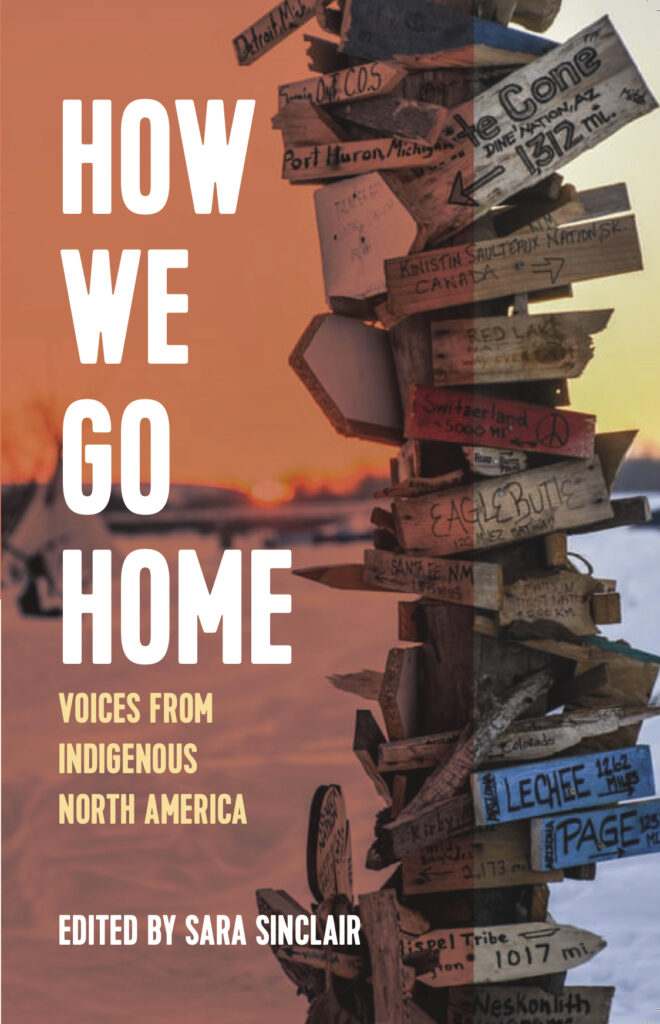
Who can participate?
The Sharing History Initiative is geared toward public schools, community colleges, and universities, as well as arts, advocacy, or community-based nonprofits. By fostering these relationships, we aim to grow our national network of educators, storytellers, and social justice advocates. See past and current participating schools and organizations here.
The initiative connects participants with dynamic resources, including:
- Free Common Core-aligned curricular resources, including:
- Voice of Witness Book Club resources
- The Voice of Witness Learning Community
- Our Webinar Series
- Other Voice of Witness workshops
Are the books really free?
Yes, they are really free! We’ve received funding from various individuals and foundations in order to offer these books free of charge. Mailing and book shipping costs are also covered. Our curricular resources are always free to download.
Am I eligible to apply?
The Sharing History Initiative is open to individuals in the U.S. who work with communities in an educational or advocacy-based capacity. This includes educators at middle schools, high schools, community colleges, and universities, as well as individuals affiliated with a nonprofit, community center, or other organization that directly serves a community. What matters most is a demonstrated commitment to working with a community and a desire to educate, advocate, and promote empathy and justice through storytelling.
What are the goals of the Sharing History Initiative, and how will that impact the selection process?
While reviewing the applicant pool, we will consider how the selected applicants, as a group, will reflect the initiative’s goals of:
- Addressing the needs of under-resourced public schools and teachers in areas most impacted by book bans and censorship issues
- Serving a large geographic range in the U.S.
- Serving a diversity of schools and organizations, ranging from middle and high schools to nonprofits, arts organizations, community centers, community colleges, and universities
Which book(s) will I receive?
Every school or organization selected to participate in the initiative will receive a free set of a title of their choice among eight of our books. Participants will be able to select which book they prefer.
Is there free curriculum for the book?
There is a free, downloadable curricular unit for all of our books available on our website except for Unheard Voices of the Pandemic, but it can be paired with our other free oral history resources.
When will I find out if I’ve been selected to receive the books?
The application process closes on May 31, 2023. We will notify all schools and organizations in June and July if they have been accepted.
How many books will I receive?
Each participating organization or school will receive a maximum of thirty (30) books, depending on the size of the classroom or community group they will be working with.
When will the books arrive?
Books will be shipped at no cost to participating schools and organizations in the late summer.
If I’ve participated in the Sharing History Initiative before, can I apply again?
Yes, as long as the book title has changed. If you previously received a set of Mi María, Unheard Voices of the Pandemic, How We Go Home, Solito, Solita, Underground America, The Voice of Witness Reader, or Chasing the Harvest, you are welcome to apply for copies of a different title. However, priority will go to schools and organizations that meet our initiative’s goals and have not received any books in prior years.
What does Voice of Witness require or expect in return?
We require communication with VOW’s Education Specialist & Program Coordinator (for schools/educators) or with VOW’s Community Partnership Coordinator (for organizations). We require a short evaluation during summer 2024 detailing how the books were used (or why they were not yet used), which learning goals were addressed, etc. Our expectation (but not requirement) is that participating schools and organizations will contribute to Voice of Witness curricular resources by sharing lesson plans, project ideas, testimonies, assessment models, work samples, and other demonstrations of how the books were used in classroom and community settings.
What is a Voice of Witness “learning community”?
The short answer is that in a Voice of Witness learning community, everyone is an educator and everyone is a student. The slightly longer answer is that Voice of Witness learning communities are engaged and supportive networks of individuals and organizations who are committed to the transformative power of storytelling and share an interest in education, social justice, community building, advocacy, critical thinking, communication, cultural awareness, and more.
What was the Germanacos Fellowship for Sharing History?
From 2016 through 2020, we facilitated a special fellowship for teachers exploring oral history projects in the classroom, generously supported by the Germanacos Foundation. Learn more about the fellows and their projects here.
If you still have questions, feel free to contact us at edu@voiceofwitness.org.
What Participants Are Saying
It was a powerful text for me and my students. There wasn’t a story that the students didn’t connect with.
—Christie Allred, San Diego Mesa Community College
My classes have never been more engaged.
—Graham Knisley, Valley Prep Academy in Louisville, KY
Even those who were generally reluctant readers really got into the personal narratives captured in the chapters. They demonstrated a lot of empathy and understanding about highly vulnerable workers and injustice.
—Hillary Walker, Life Academy in Oakland, CA
“I had a higher participation rate than I expected because of the book. It is amazing.”
—Angela LeBlanc, Moreno Valley High Dual Enrollment in Moreno Valley, CA
More Tools
Learn how educators at East Bay Arts engaged students through an oral history-based podcast project.
